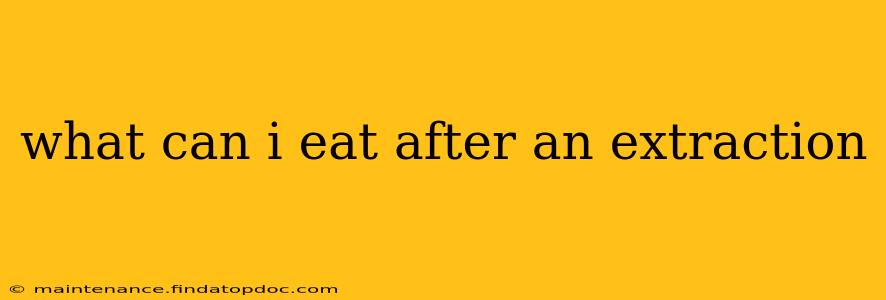What Can I Eat After an Extraction? A Guide to Post-Surgical Nutrition
Having a tooth extracted can be a bit of a jarring experience, and knowing what you can eat afterwards is crucial for a smooth recovery. The key is to focus on soft, easily digestible foods that won't irritate the extraction site. This post will guide you through the best foods to eat after an extraction, as well as foods to avoid. We'll also address some common questions people have about post-extraction diets.
What to Eat After a Tooth Extraction:
The first 24 hours are the most critical. You'll want to stick to very soft foods that require minimal chewing. Think liquids and purees. After that, you can gradually reintroduce more solid foods, but always be gentle.
- Liquids: Broths (chicken, vegetable), smoothies (ensure they're not too thick or contain seeds), protein shakes, milk, yogurt (full-fat is generally better tolerated). These are essential for hydration and providing your body with nutrients.
- Pureed Foods: Applesauce, mashed potatoes (without lumps!), pureed soups, strained oatmeal. These offer a little more texture and substance.
- Soft Foods: Scrambled eggs, yogurt, well-cooked pasta (ensure it's soft), mashed bananas, cottage cheese, pudding. These are easy to chew and swallow.
- Other Soft Options: Soft tofu, avocado, well-cooked vegetables like carrots or sweet potatoes (mashed or very well-cooked).
Foods to Avoid After a Tooth Extraction:
It's important to avoid anything that could disrupt the blood clot forming at the extraction site. This clot is essential for healing. Here's a list of foods to steer clear of:
- Anything requiring significant chewing: Hard, crunchy foods like chips, nuts, pretzels, and raw vegetables should be completely off the menu.
- Spicy foods: These can irritate the healing gums.
- Extremely hot or cold foods and drinks: Temperature extremes can cause discomfort and potentially interfere with healing.
- Straws: Sucking through a straw can dislodge the blood clot, hindering healing. Avoid this entirely for at least the first 24-48 hours, and ideally longer.
- Alcohol and Smoking: Both significantly impair healing and increase the risk of infection.
How long should I eat a soft food diet after a tooth extraction?
This depends on the complexity of the extraction and your individual healing process. Generally, you can begin to reintroduce slightly firmer foods after a few days, but it's best to wait at least a week before returning to a regular diet. Always listen to your body and consult your dentist if you have any concerns.
What if I'm struggling to find soft foods to eat?
Experiment! Many recipes can be adapted for a soft food diet. Try adding extra liquid to recipes to make them smoother.
Can I eat solid food immediately after the extraction?
No, you should avoid solid food for at least several hours, ideally the first 24 hours after the procedure. This time is crucial for the formation of the blood clot, which helps prevent infection and promotes healing.
What about nutritional supplements?
If you’re worried about getting enough nutrients through a soft food diet, you could consider a nutritional supplement. Consult your dentist or doctor before taking any supplements, though, as they may interact with any medications you're taking.
My extraction site is still painful after several days. What should I do?
If you experience significant pain, swelling, or bleeding several days after your extraction, contact your dentist immediately. It could be a sign of a complication.
Remember, patience and proper nutrition are key to a successful recovery after a tooth extraction. Following these guidelines should help you heal comfortably and efficiently. Always follow your dentist's specific post-operative instructions. This information is for general knowledge and should not replace professional dental advice.
